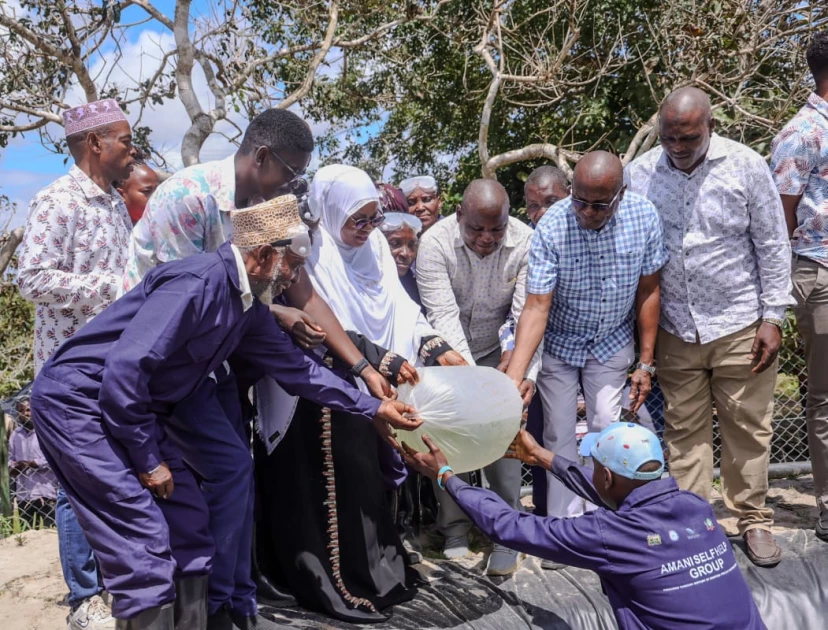Kwale County launches fish farming boost with 4,000 fingerlings in Maponda

The initiative, implemented through the Kenya Marine Fisheries and Socio-Economic Development (KEMSFED) project and funded by the World Bank, is part of a broader strategy to expand fish farming as a source of income, strengthen food security, and generate sustainable employment for local residents.

Audio By Vocalize
The initiative, implemented through the Kenya Marine Fisheries and Socio-Economic Development (KEMSFED) project and funded by the World Bank, is part of a broader strategy to expand fish farming as a source of income, strengthen food security, and generate sustainable employment for local residents.
Speaking during the event, Governor Achani reaffirmed her administration’s commitment to leveraging the blue economy for grassroots empowerment.
“Fish farming is not just an alternative livelihood; it is a strategic pillar of economic transformation for our people. By investing in aquaculture, we are creating sustainable incomes, enhancing food security, and empowering communities to take charge of their future,” she said.
Since the inception of the KEMSFED program, the county government has distributed more than 65,000 fingerlings to at least 20 organized fish farming groups, while also constructing 58 fish ponds across Tsunza, Msambweni, Kinango, and Lungalunga. In addition, farmers have been equipped with essential tools such as pond harvesting nets, water quality testing kits, post-harvest equipment, and protective gear.
Governor Achani emphasized that the interventions are designed for long-term impact.
“Our focus is on systems that uplift communities, create wealth, and ensure no family is left behind in our journey towards economic independence,” she added.
Kwale Deputy Governor Chirema Kombo echoed her sentiments, noting that aquaculture would inject new energy into the local economy.
“This is a big step forward for Mkongani. Fish farming will create jobs, improve household incomes, and support small businesses linked to fish production,” Kombo said.
Beneficiaries of the initiative, including Maponda resident and fish farmer David Mukoma, expressed optimism about the project’s potential.
“This project gives us hope. We now have the opportunity to earn a stable income and ensure our families have a reliable source of food. It’s a fresh start for many of us,” Mukoma said.


Leave a Comment